Travelling comes with a lot of benefits for everyone. But you should especially travel more often as a couple and here’s why.
You get to know each other better when you hit the road together. Travelling also means a break free from boredom and usual city life traffic and worries. As a result, the romance also gets better when you travel as a couple. Even when you don’t have enough time to go for a long trip, short and quick getaways also work as cheap therapy. Travelling together makes you look at each other as more of a companion than just a romantic partner. Finally, travelling is the best way to curate more exciting memories together that will keep the spark of your romance alive for a long, long time.
1. Build Stronger Bonds Through Shared Experiences
Table of Contents
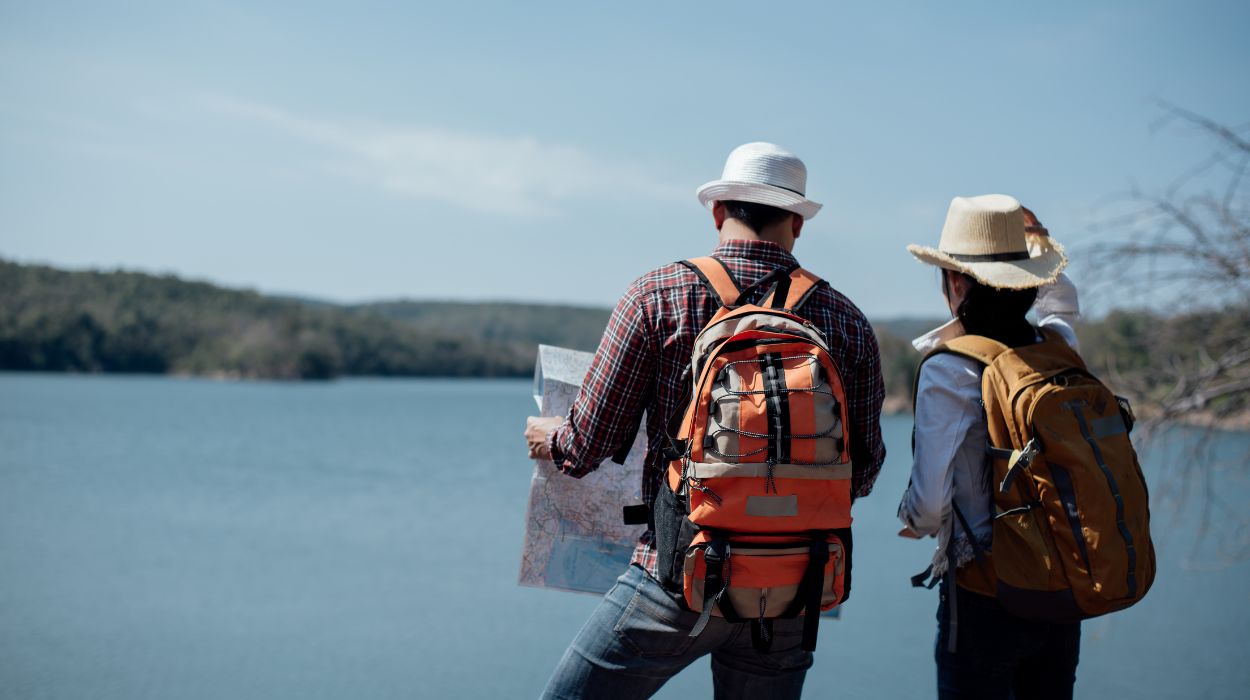
Traveling creates unforgettable memories and shared adventures that bring couples closer. Facing challenges like navigating a new city or exploring new cultures together fosters teamwork and mutual support.
Related Reading: How Can Couples Do Budget Traveling Together
2. Improved Communication And Problem-Solving Skills
From planning trips to dealing with unexpected situations, traveling encourages better communication. Couples learn to discuss, compromise, and make decisions together, strengthening their problem-solving skills.
Related Reading: Communication Problems In Relationships – 11 Ways To Overcome
3. Reignite Passion And Intimacy
A change of scenery and getting away from daily routines can reignite romance and intimacy. Discovering new places together creates a sense of excitement, helping couples reconnect and rediscover their love.
“The beauty of traveling as a couple lies in making memories that belong to just the two of you.”
4. Discover More About Each Other
Traveling allows partners to see each other in different situations—whether it’s their approach to challenges, their sense of adventure, or their ability to adapt to new environments. These experiences offer insights that help deepen understanding and appreciation for each other.
5. Create Time for Quality Connection Away from Distractions
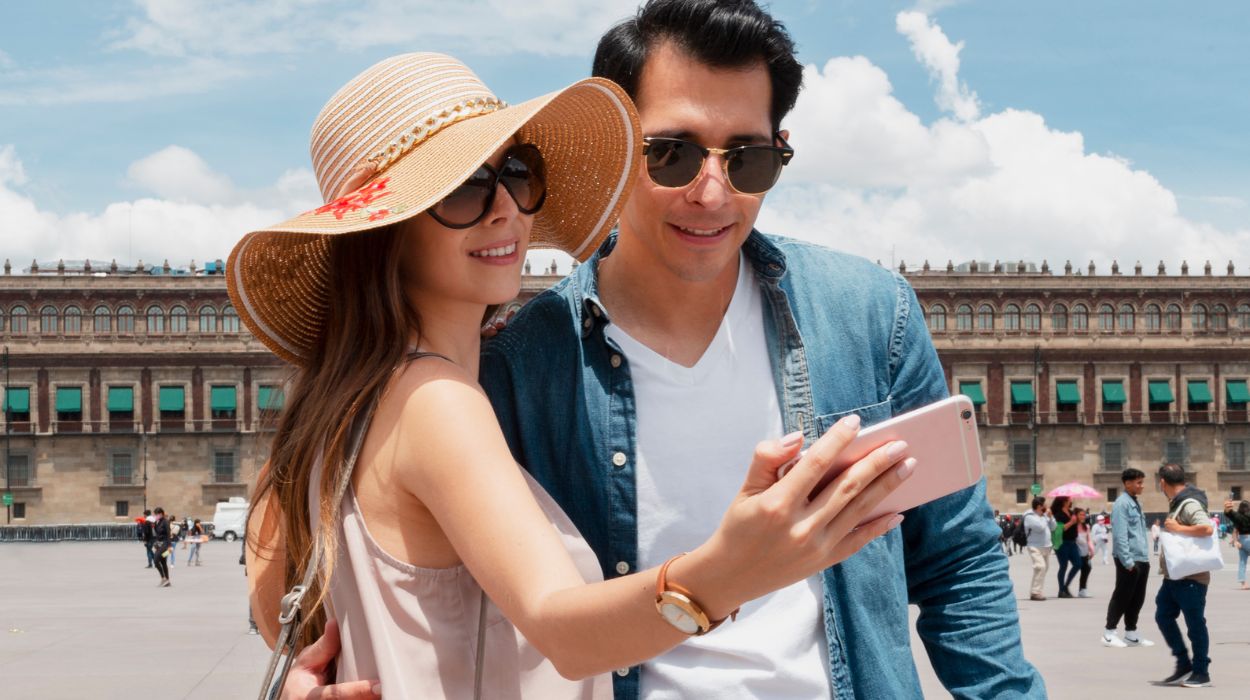
Being away from work, technology, and other distractions allows couples to focus solely on each other. Quality time without daily interruptions helps improve emotional connection, allowing deeper conversations and opportunities to simply enjoy each other’s company.
- Set Tech-Free Zones or Times: Designate certain times of the day or areas in your home (like the bedroom or dining table) as tech-free zones to focus on uninterrupted connection.
- Plan Regular Date Nights: Set aside one night a week or month to do something special together—whether it’s a dinner out, a movie night, or an activity you both enjoy.
- Take Mini Getaways: Even a weekend road trip or a staycation can help you both disconnect from daily routines and focus on each other.
- Schedule Daily Check-Ins: Make it a habit to have short, meaningful conversations daily about how each other’s day was, thoughts, or feelings.
- Engage in a Shared Hobby: Find an activity or hobby you both enjoy, like cooking, hiking, painting, or dancing, that you can regularly do together to bond and have fun.
- Go for Walks Together: Taking a walk, even if it’s just around the block, provides time to talk, hold hands, and enjoy each other’s company without interruptions.
Traveling together is not just a journey to a new place; it’s a journey to grow closer, understand each other better, and build a more connected relationship.
FAQs
1. How does traveling together improve our relationship?
Traveling challenges couples to communicate, make decisions, and handle unforeseen situations together. This not only strengthens teamwork but also creates shared experiences that strengthen the bond.
2. What if we have different travel preferences?
Differences in travel preferences are normal. It’s a great opportunity to learn more about each other and find a middle ground. Blending different types of experiences can make the trip even more exciting and diverse.
“I love beaches, and my partner is a mountain person. Instead of compromising, we decided to make each trip a mix—some days for beach relaxation, and others for hiking. It turned out to be a great way to appreciate each other’s interests and explore more.”
3. How do we manage stress while traveling?
Stressful situations are part of traveling, but they also present opportunities to support each other and build problem-solving skills. Having a positive attitude and focusing on finding solutions helps turn challenges into fun stories.

Final Thoughts
Traveling as a couple is more than just sightseeing and relaxation—it’s an opportunity to connect, grow, and build a deeper bond with your partner. Facing new experiences, navigating challenges, and spending quality time together away from the distractions of everyday life can bring a new perspective to your relationship. Whether you’re discovering hidden gems in a city or simply enjoying each other’s company by the beach, each adventure adds a new layer of understanding, love, and appreciation for one another.
Your contribution does not constitute a charitable donation. It will allow Bonobology to continue bringing you new and up-to-date information in our pursuit of helping anyone in the world to learn how to do anything.

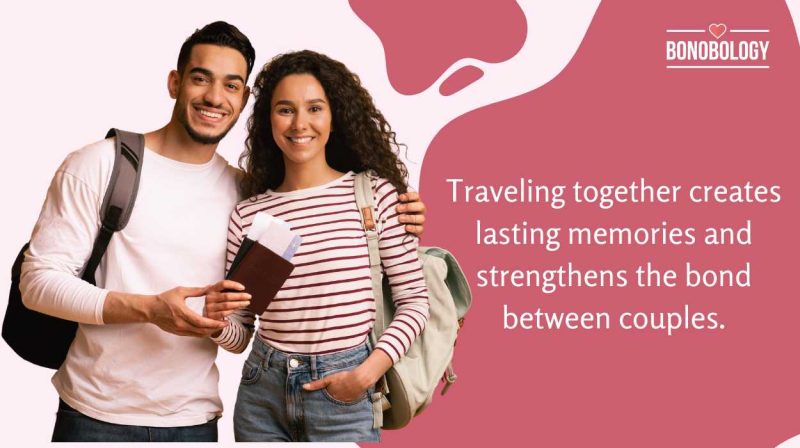


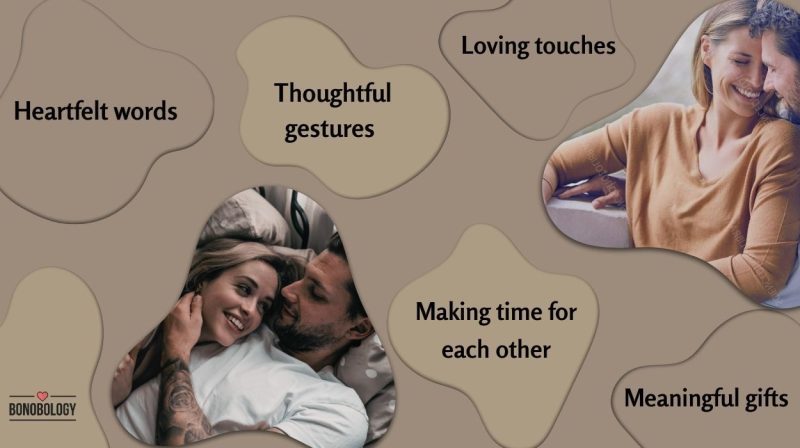








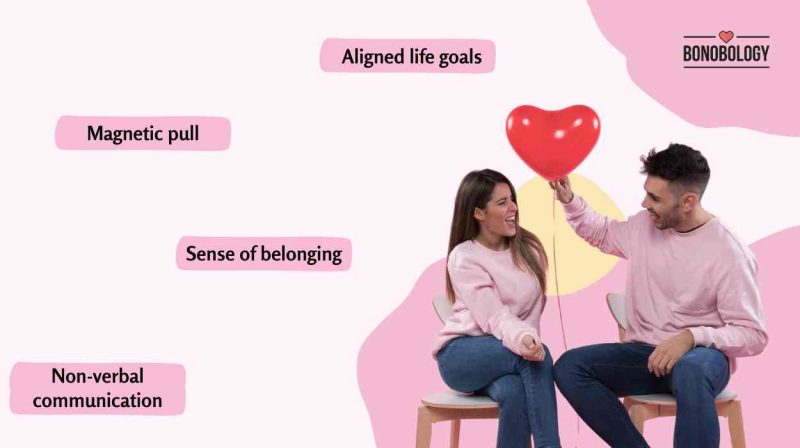





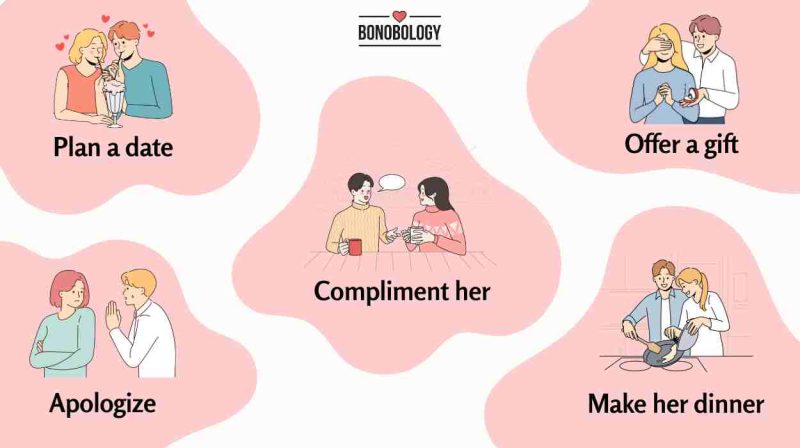



Featured
Looking For Words To Make Her Trust You? 300 Ideas
What Is Affection In A Relationship And How To Show It
21 Undeniable Signs A Guy Is Claiming You
Why Do I Want To Bite My Boyfriend? The Psychology Behind It
Ungodly Soul Ties Keeping You Stuck? Learn How To Break Them
How To Feel Confident During Your First Sex Experience
200+ Creative Responses To “I Love You”
15 Things to Consider Before Making a Relationship Official
How To Make Him Obsessed With You: 21 Smart Tips
10 Best Apps for Long-Distance Relationships
21 Signs You Have An Unexplainable Connection With Someone
150 Words Of Affirmation Examples To Cement Your Bond
7 Obvious Signs He Likes You, As Per A Relationship Expert
How To Manifest Someone To Be Obsessed With You
100 Romantic Birthday Wishes To Make Your SO’s Day Extra Special
200 Romantic Text Messages That Will Make Her Want You Badly
How To Make It Up To Your Girlfriend: 20 Effective Ideas
Emoji Love Texts: 15 Creative Ways to Express Your Feelings
30 Romantic Emoji Meanings — Decoded for You
100 Things for Couples to Do Together